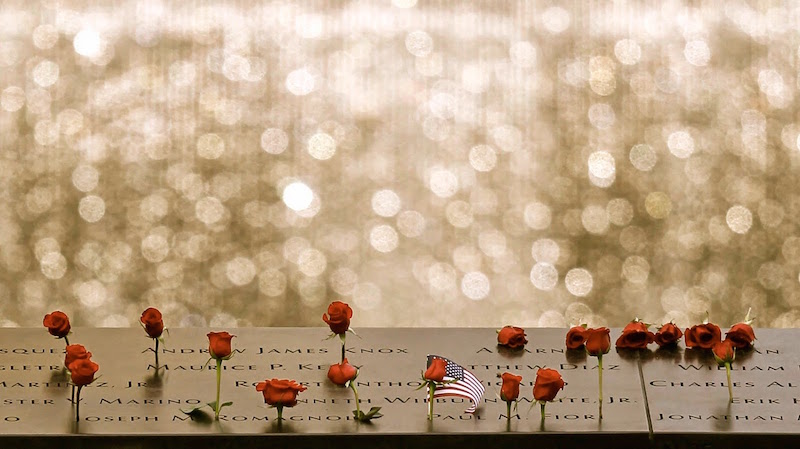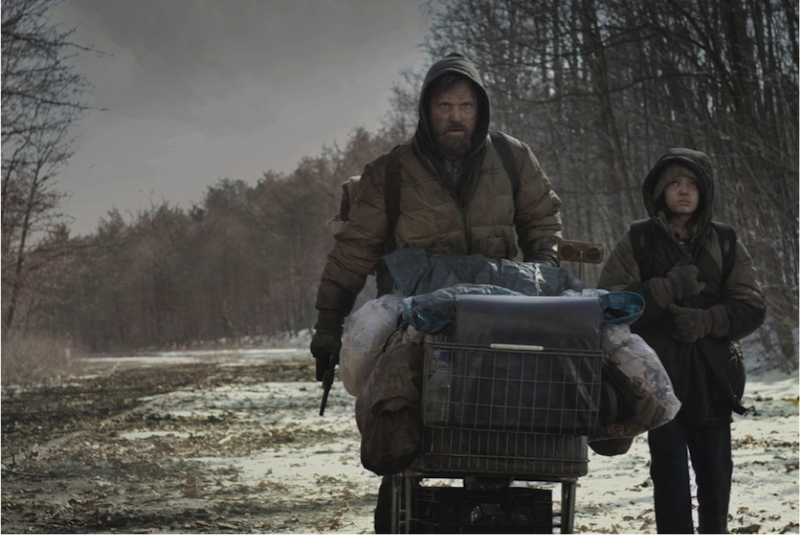Try to Praise the Mutilated World
William Coleman
Not long after the towers fell, poems began appearing. “People in New York taped poems on windows, wheatpasted them on posts, and shared them by hand,” Philip Metres wrote in an essay for The Poetry Foundation a decade after 9/11. “Outside the immediate radius of what became known as ‘Ground Zero,’ aided by email, list serves, websites, and, later, blogs, thousands of people also shared poems they loved, and poems they had written.”
One such poem, set at the center of the back page of The New Yorker a week after the devastation, is called “Try to Praise the Mutilated World”:
Try to praise the mutilated world. Remember June's long days, and wild strawberries, drops of wine, the dew. The nettles that methodically overgrow the abandoned homesteads of exiles. You must praise the mutilated world. You watched the stylish yachts and ships; one of them had a long trip ahead of it, while salty oblivion awaited others. You've seen the refugees heading nowhere, you've heard the executioners sing joyfully. You should praise the mutilated world. Remember the moments when we were together in a white room and the curtain fluttered. Return in thought to the concert where music flared. You gathered acorns in the park in autumn and leaves eddied over the earth's scars. Praise the mutilated world and the gray feather a thrush lost, and the gentle light that strays and vanishes and returns.
The work was written a year and a half before the planes that felled the towers were compelled toward destruction; it was composed by Adam Zagajewski in a language foreign to most American ears, Polish, and later translated into English by Clare Cavanagh. The images recall a trip the poet and his father took within a part of their homeland that now falls within the Ukraine—villages emptied of people when Stalin’s dream of supreme rationality held sway. One of those villages, Lvov, was the Zagajewski family home for centuries.
“I remember how this poem was passed around from person to person during 9/11,” Mary Oliver later reflected. “It was profoundly moving and apt (it still is), and I remember how thankful I was that poetry exists (I still am).”
In a state given to uncertainty, in a time when meaning’s occluded by ash, we long for the “felt change of consciousness” poetry provides. The term belongs to Owen Barfield, the “first and last Inkling” who in Poetic Diction likens the act of reading poetry to wire coil passing through magnetic space: we are charged with a change of state, ordered at our most elemental levels. His metaphor is decidedly materialist (for such was the philosophy the young Barfield, witness to World War I, was forged within), but it is one that reinvests the phenomenal world with a sense of wonder, refigures awe toward invisible forces whose work, by such poetic accounts, is aimed at making us feel a sense of integrity beneath surface fissures, a sense of connectedness with a fundamental order we cannot otherwise perceive.
Once we were one with the given world, Barfield continues. Our language (what he calls a fossil record of consciousness) is evidence of such a union. In ancient days, single words denoted what now we describe as distinct phenomena: pneuma in Greek, for example (the same is true for spiritus in Latin) conveyed, at once, wind and breath and spirit—a vestige of a prior consciousness in which mankind participated directly (and seamlessly) with reality: mortal coil charged with the grandeur of God.
And so, when we come upon the leaves eddying over the earth’s scars in Zagajewski’s poem and imagine water and air in one instant, or when we envision the nettles in single perception as both a means of imprisonment and a method of protection from further coercive incursions, we are participating in a rich ambiguity which allows us once again to feel the pulse and pull of integral life.
Upon inspection, of course, such ambiguity is not a comfort. An executioner sings. Pleasure boats are drowned. But such ambivalence is also the means by which the revivifying power of poetry can find passage to our loss- and doubt-ravaged consciousness, minds grown accustomed to an often stupefying awareness of multiplicity (of motives and actions). A feather lost presumes—however dimly—the existence of the rest of that thrush, the one the despairing Thomas Hardy found on the eve of the twentieth century, the one participating directly with “some blessed hope,” and which almost exactly a century later, arrived to Zagajewski, and then to us. And those gathered acorns—they may well come to nothing; the ones that remain, sheltered without question by fallen leaves, will largely come to the same dead end. Such hope, surely, is negligible. But it is no less real for our negligence, and no less real for being, for the time, beyond our sight, and able to emerge only through a scarred and breaking surface.




